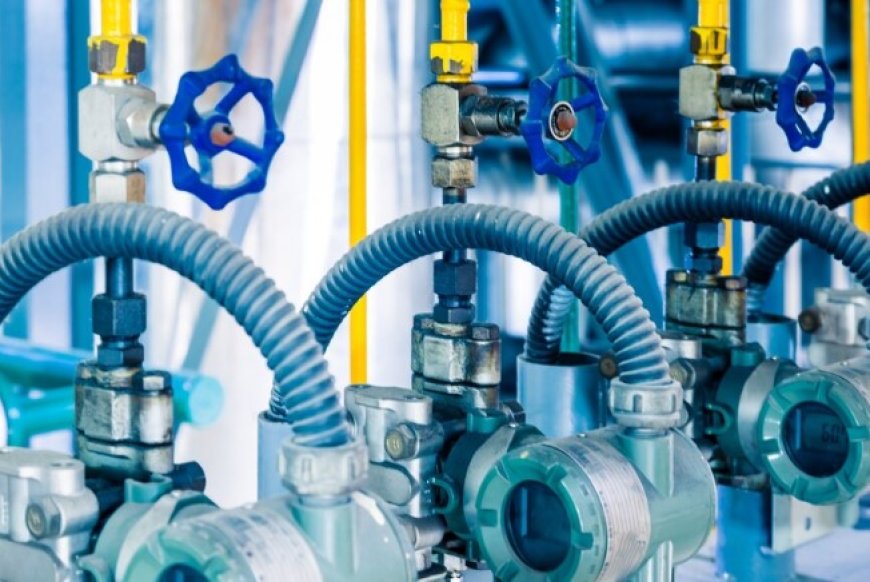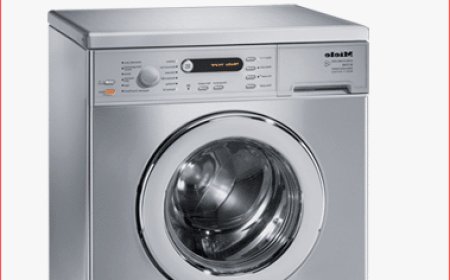What Makes Proportional Valves Essential in Modern Fluid Systems?
Discover why Proportional Valves are essential in modern fluid systems. Learn their benefits, applications, and growing demand in India’s industrial sectors.

In today's fast-paced industrial world, precision, efficiency, and automation are no longer optional—they're essential. Whether it's manufacturing, automotive, medical, or heavy machinery, one component plays a silent yet powerful role in keeping these systems smooth and responsive: Proportional Valves. These advanced control devices are not just components—they are the heartbeat of modern fluid systems.
But what exactly makes proportional valves so important? And why is their demand, especially for Proportional Valves in India, steadily rising? Let’s explore what sets them apart and why engineers, industries, and system designers trust them.
Understanding Proportional Valves
To understand their value, we first need to understand what proportional valves do. In simple terms, proportional valves regulate fluid flow or pressure in a system based on an electrical input signal. Unlike traditional on/off valves that operate in two states—either fully open or fully closed—proportional valves can operate at multiple positions in between. This allows for smoother control and greater flexibility in system operations.
Imagine driving a car with only two speeds—0 and 100 km/h. It’s impractical, right? That’s exactly the problem proportional valves solve for fluid systems.
Precision in Control
One of the biggest advantages of proportional valves is precision. These valves are designed to respond proportionally to the input signal, which means you can fine-tune flow or pressure with incredible accuracy. This level of control is critical in applications like:
-
Injection molding machines
-
CNC machinery
-
Hydraulic presses
-
Robotic automation
-
Medical fluid equipment
By allowing precise modulation, proportional valves help reduce waste, improve performance, and maintain consistency in operations. Whether it's delivering exact pressure to a hydraulic cylinder or controlling fluid speed in a medical pump, they offer a reliable solution.
Efficiency and Energy Savings
Modern industries are all about doing more with less. Proportional valves help achieve just that. Because they allow variable flow control, systems can operate more efficiently and only use the energy they actually need. For instance, in hydraulic systems, these valves prevent unnecessary build-up of pressure, which reduces heat, energy loss, and wear-and-tear on components.
Additionally, using proportional valves in a system reduces the need for complex mechanical linkages or multiple valves, which also saves space and lowers maintenance costs.
Compact, Smart, and Adaptable
Another reason why proportional valves are essential in modern setups is their compact and intelligent design. As industries continue to embrace smart technologies and IIoT (Industrial Internet of Things), there's a growing need for components that can integrate with sensors, controllers, and automation software.
Modern proportional valves often come with integrated electronics, feedback mechanisms, and communication protocols (like CANopen or EtherCAT), making them a perfect fit for smart fluid systems. This adaptability ensures they’re not just compatible with today’s machines, but also future-proof for tomorrow’s technologies.
Safety and System Protection
In fluid systems, unexpected pressure surges or uncontrolled flow can be dangerous, not just to the machinery but to personnel as well. Proportional valves help enhance safety by offering controlled response to inputs, reducing the risk of sudden pressure shocks or mechanical failure.
When used in combination with sensors and PLCs, these valves can automatically adjust based on system conditions, ensuring the entire operation stays within safe and optimal parameters.
Growth of Proportional Valves in India
India’s industrial sector has seen rapid growth in automation, manufacturing, and infrastructure development over the past decade. With this rise, there’s been a significant demand for advanced control systems—and at the center of this are Proportional Valves in India.
From automobile manufacturing in Pune to heavy engineering in Chennai, and pharmaceutical equipment in Hyderabad to smart farming technologies in Punjab—proportional valves in India are finding applications in a wide range of industries.
Local manufacturers and suppliers have started offering globally competitive solutions, and the Indian market is now home to several international and domestic brands specializing in proportional valve technology. The increasing awareness about energy efficiency, machine safety, and automation is expected to fuel further demand in the years to come.
Applications Across Industries
Let’s take a quick look at where proportional valves are making a difference:
1. Automotive Industry
Used for controlling hydraulic actuators in assembly lines and manufacturing presses.
2. Medical Equipment
Essential in devices that need highly accurate control of gases or fluids like ventilators and dialysis machines.
3. Industrial Automation
Used in robotic arms and machinery for precise movement and positioning.
4. Agriculture
Helping in modern irrigation systems and tractors for fluid power control.
5. Aerospace
Controlling hydraulic systems in simulators and aircraft ground testing rigs.
Choosing the Right Proportional Valve
Selecting the right valve depends on your system's specific requirements—flow rate, pressure range, type of media (liquid or gas), and response time. Here are a few tips:
-
Check compatibility with your control system (analog or digital).
-
Look for reliable brands that offer support and spares in India.
-
Consider future scalability—choose valves that can adapt to automation needs.
Working with a knowledgeable supplier or system integrator can help you make the right choice based on your industry and application.
Final Thoughts
In a world where precision, safety, and efficiency matter more than ever, proportional valves are proving to be an indispensable part of modern fluid systems. They offer a blend of intelligence, adaptability, and control that traditional valves simply cannot match.
With the increasing shift towards smart manufacturing and sustainable operations, the role of Proportional Valves in India will only grow stronger. If your system demands smarter control, better energy savings, or enhanced safety—it’s time to consider integrating proportional valves.
So, whether you're an engineer, a factory manager, or a system designer, don’t overlook this powerful component. Proportional valves are not just hardware—they're the key to unlocking the next level of fluid control.








































